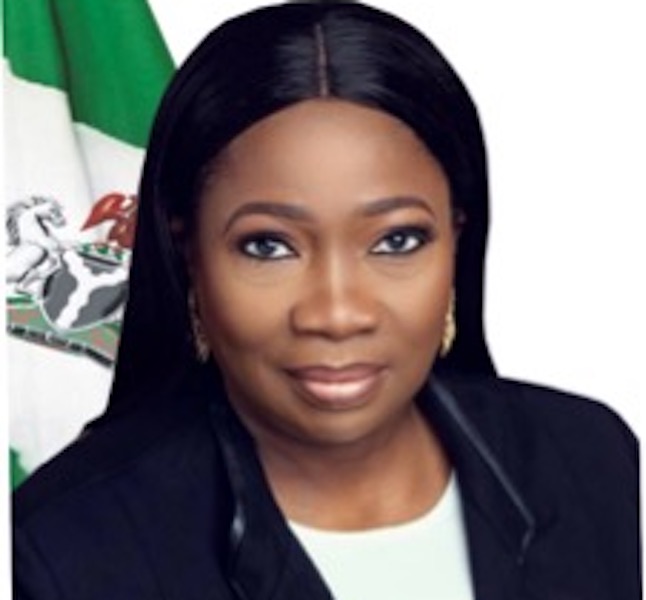The government of Zambia has expressed its desires to explore possible collaboration and study the approach adopted by Nigeria in engaging with its citizens in the diaspora and how the engagement influences the nation’s economy.
This is was stated when a delegation from Zambia paid a courtesy call on the Nigeria Diaspora Commission (NiDCOM).
The team, led by Zambia’s Assistant Labour Commissioner, Ms. Mukamasole Kasanda, was accompanied by officials from the International Organisation for Migration (IOM).
Kasanda stated that the purpose of the visit was to leverage Nigeria’s experience to strengthen Zambia’s diaspora engagement. She praised NiDCOM for its efforts in recent years and expressed Zambia’s intention to learn from its experience.
A delegation from Zambia visited the Nigeria Diaspora Commission (NiDCOM) to explore possible collaboration and study an approach to engaging with Nigerians in the diaspora and how it influences the nation’s economy.
The team, led by Zambia’s Assistant Labour Commissioner, Ms. Mukamasole Kasanda, was accompanied by officials from the International Organisation for Migration (IOM).
Kasanda stated that the purpose of the visit was to leverage Nigeria’s experience to strengthen Zambia’s diaspora engagement. She praised NiDCOM for its efforts in recent years and expressed Zambia’s intention to learn from its experience.
What she said
Kasanda explained that the country is considering establishing a migration resort center, which has been its focus over the last two days.
She noted that Nigeria’s constitution now allows dual citizenship, which is a positive development. Zambia also recently revised its constitution to include provisions for dual citizenship.
“We are looking at establishing a migration resort center and in the last two days, this has been our homework.
“Your Constitution now allows for dual citizenship and it is a plus, we also worked on our constitution recently and one of the issues we looked at was to ensure that there was dual citizenship.
“We must commend you in ensuring that you lobby enough to have a law on Diaspora because it is very difficult to operate without a law, usually you have a lot of resistance from the general public and even within government itself,’’ she said.
Ms Kasanda praised Nigeria for successfully advocating for legislation on diaspora matters, recognizing the challenges of operating without such a law due to resistance from the general public and the government.
In her response, Head of NiDCOM, Abike Dabiri-Erewa, represented by the Commission’s Secretary, Dr. Sule Bassi, highlighted the relevance of Nigeria’s diaspora.
She noted that Nigeria has a population of over 200 million, with approximately 20 million Nigerians living in the diaspora and contributing to the GDP of both their host communities and Nigeria.
Dabiri-Erewa provided the visiting Zambian delegation with insights into the global impact of Nigerians in the diaspora and their importance to their country of origin.
“Nigerians in Diaspora are a huge global economy drivers in different fields that they find themselves, which are healthcare, sports, entertainment, entrepreneurship amongst other. They remit 20 billion dollars yearly to the Nigeria economy.”
According to her, former U.S President Barack Obama had once said when Nigerians were removed from the American healthcare system the medical field will collapse.
“We have eight Nigerians in the U.S Congress and also a Nigeria has established an Agege Bread Bakery in Canada.
“This is just a few of what the diaspora are doing and that is how important Nigerians are to their host communities,’’ she said.
The chairman noted that the commission is still facing challenges in harmonizing the diaspora with the home front to build a stronger nation.
Similarly, IOM Regional Project Coordinator, Mr. Sunday Omoyeni, emphasized that effective management of migration can open avenues for development. He added that the Zambian government’s focus on diaspora engagement stems from a desire to harness the dynamics of migration.
“In Zambia, we have intra-regional migration which happens within the region compared to Nigeria where we have more of Nigerians who migrate outside the region.
“I think the region as a whole has come to the realisation of the need for them to leverage the migration dynamics for the development of the country.
“This also align with the principles of IOM in terms of ensuring that migration is beneficial.
“Migration is not just about problems, when migration is effectively managed it can create an avenue for development,’’ he said.
